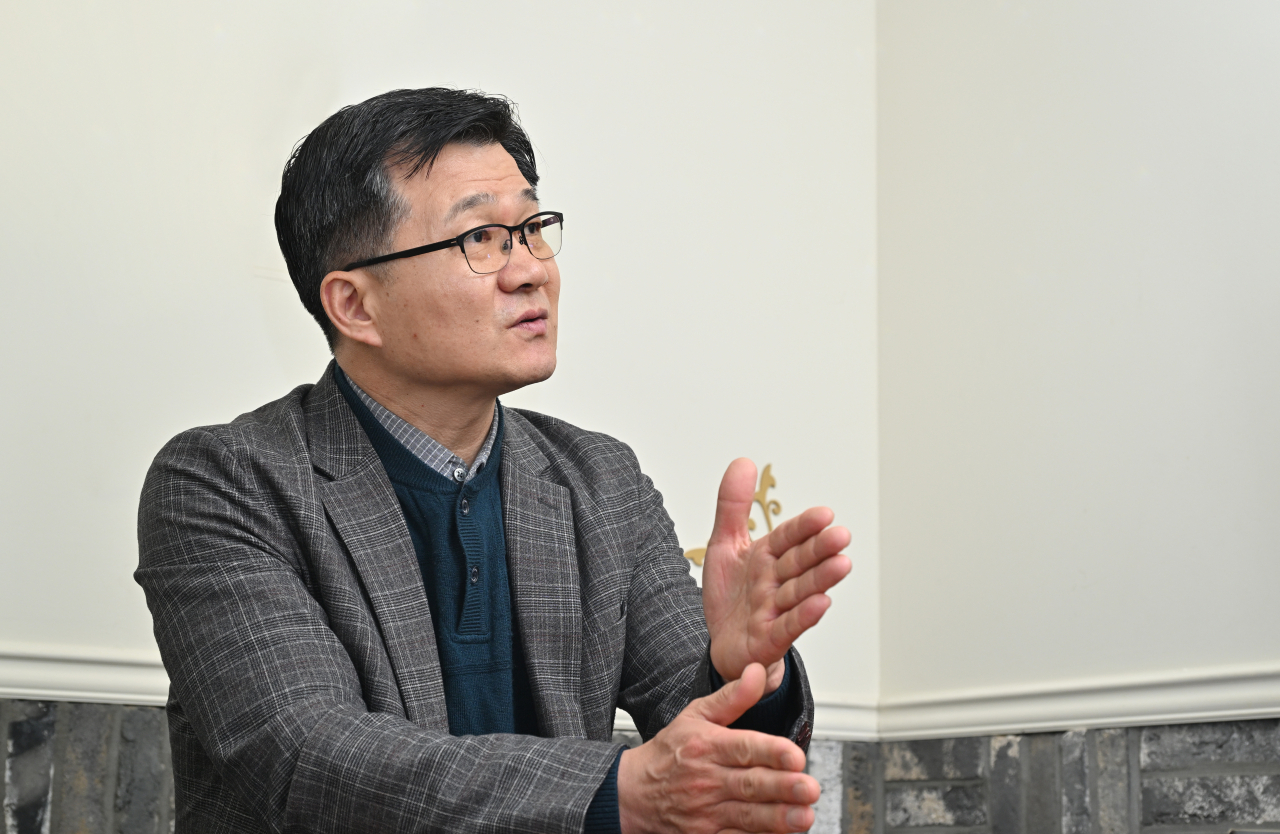[Herald Interview] ‘Korea needs to power up defense academia’
Stronger academia will lead development of future technology: former DAPA head
By Kan Hyeong-wooPublished : Feb. 18, 2024 - 17:17

South Korea now should focus on fostering defense academia and young talents to become a leader in the global defense industry, says Kang Eun-ho, former chief of the Defense Acquisition Program Administration.
“In the past, Korea followed a catch-up strategy (in advancing its defense industry), which was a second-place strategy,” said Kang in an interview with The Korea Herald in Seoul on Feb. 5.
“For the catch-up strategy, we had to succeed in over 90 or 95 tasks out of 100. If we switch our stance to a ‘first place’ strategy, we are entering an opaque area. It means that we are going to have success in maybe two to three projects out of 100 and then we must encourage trial and error and change the culture to learn from mistakes. Who is going to do that? It’s the role of academia.”
South Korea has set out the goal to become the fourth-largest weapons exporter in the world by 2027. Posting approximately $14 billion in defense exports last year, the country ranked ninth on the list of the world’s largest arms exporters.
Kang took an example from history, mentioning how people at the end of the Bronze Age and at the beginning of the Iron Age would have acted differently to the question of how the best weapons should be developed.
“A sword craftsman of the Bronze Age would have said the rise of iron is just temporary because it’s in the very early phase. But the truth was that basically, any iron sword could crush a bronze sword of the best quality,” he said.
“People immersed in daily operations cannot see the changing trends in weapons technology. You need the academic sector that continues research and experiments to discover and present what will be the next big thing.”
Kang, who spent about 16 years at the DAPA from the institute’s establishment in 2006, highlighted that Korea lacks the foundations required for nurturing defense talents at the collegiate undergraduate level. Having served as the DAPA head from Dec. 2020 to June 2022, he is now a policy planning consultant at the Agency for Defense Development and a distinguished professor at Jeonbuk National University.
“There are defense acquisition majors at grad schools, but students there are almost all officials working in the defense industry,” he said.
“There are no courses that are aimed at raising talents who are loyal to the defense industry in their early to mid-20s. We need to have undergraduate courses to bolster defense academics and this can accumulate research and studies. Korea’s rise on the global defense stage is a result of our amassed power over the last 50 years.”
South Korea has become a top-10 military supplier in the world as the country’s weapons exports increased by 74 percent between 2018 and 2022, according to the Stockholm International Peace Research Institute. The country expanded its export markets to 12 countries last year, a significant jump from four nations in 2022.
“I’ve met with Jeonbuk National University, Pusan National University and Kyungpook National University and they all promised to create courses that focus on fostering undergrad students in the defense field,” said Kang.
The former DAPA chief also underscored that the role of defense academia should be expanded beyond research to establish ethical and philosophical guidelines for weapons, calling the defense industry a “peace protection industry.”
Kang took the example of cluster bombs containing explosive sub-munitions that can be scattered to attack a wide area, explaining that defense researchers should come up with technologies that can lower the cluster bombs’ failure rate to prevent risks of civilian damage.
“Defense research is a sector developing technologies that can kill people,” he said.
“Conducting the right investment and right research is the role that ‘K-defense’ must lead with national dignity. We should set the proper standards and present them at international defense forums or academies.”





![[KH Explains] No more 'Michael' at Kakao Games](http://res.heraldm.com/phpwas/restmb_idxmake.php?idx=644&simg=/content/image/2024/04/28/20240428050183_0.jpg&u=20240428180321)














